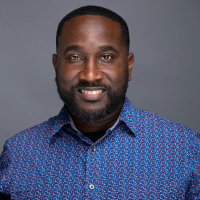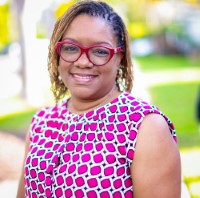The Components of Care
Latest News
The Components of Care • Course for Educators
About the CoC Program
 The Components of Care curriculum was developed to support teachers in supporting African American students in the classroom. There are six modules that address the various competencies that are necessary for teachers to understand and internalize but are often missing from teacher education programs.
The Components of Care curriculum was developed to support teachers in supporting African American students in the classroom. There are six modules that address the various competencies that are necessary for teachers to understand and internalize but are often missing from teacher education programs.
If 33% of teachers are leaving the classroom within the first three years, and 46% leave within the first five years, we must change our practices to support the teachers’ persistence in the field.
—Brill & McCartney, 2008
If we support the holistic development of educators by providing a curriculum on caring for students, while also addressing the care of educators, we may further support their persistence in the field.
Apply Now ►
Course Objectives
 Theory (Care) – Participants in the program will understand the importance of creating a caring classroom, learn about the four components of care – modeling, dialogue, practice and confirmation and learn to assess caring interactions based on a rubric.
Theory (Care) – Participants in the program will understand the importance of creating a caring classroom, learn about the four components of care – modeling, dialogue, practice and confirmation and learn to assess caring interactions based on a rubric.
Practice (Self-Awareness)– Participants will engage in activities throughout the course that require them to reflect about their own K-12 experience to build the type of classroom they would have wanted or would like for students to experience.
Community (Interpersonal skills) – Participants will collaborate with others in the course which will require them to build their interpersonal relationships. The course is intended for all audiences whether new to the profession or a veteran educator which allows for rich discussions and collaboration.
Transformation: Through the integration of theory, practice, and community, participants will develop a vast toolkit that will be utilized to create centers of care in their classrooms and school communities. The demonstration of care as an ethic of teaching explicitly shows affective and nurturing behavior toward students, which can have a positive influence on their desire to learn (Howard, 2001). In addition, they will change structures in their classroom and/or school campus to facilitate care, increasing the perception of care by the teacher and that students perceive they are cared for, thereby positively impacting academic achievement among students.
Who Should Attend
The course is open for new teachers, midyear teachers and veteran educators all who want to stay current and grow in their practices when working with students. All prerequisites will be demonstrated through the application to Components of Care for the Fall 2024 Cohort.
Course Prerequisites
One must be working in an educational setting which would include pre-service teachers, teacher aides and any students in teacher preparation programs [JP1] [PW2] in grades Pk-12 - i.e. classroom experience, counseling and administration. All prerequisites will be demonstrated through the application to Components of Care for the Fall 2024 Cohort.
All those enrolled students in Components of Care will be expected to complete the following:
- 6 Meetings: 9am—1pm on Saturdays from August—December 2024
- Monthly discussion board posts about texts that help you integrate and reflect on monthly themes; texts will include articles, podcasts, book chapters, videos, etc.
- Monthly Care Group reflections where you’ll get to share about how your practice is going and comment on others’ posts
- Group presentation at the end of the course where you share about what you have learned throughout our time together
Course Structure
Participants will learn and demonstrate the Six Components of Care in the classroom...
Module 1 | Introduction to Care
Module 2 | Themes of Care
Module 3 | Care & Educational Experiences
Module 4 | Care in the Classroom
Module 5 | Culturally-Relevant Pedagogy in the Classroom
Module 6 | Bringing It All Together - Teaching As Activism
Course Schedule
Course: TEX 553-31
Dates: January 25–May 17, 2025
Enrollment Deadline: January 21, 2025
Application Deadline: January 13, 2025
Modality: Hybrid: Live Online via Zoom + On-Campus (CE-1210)
Units: 3.0 Extension Units
Fee: $925.00
Program Faculty
 DR. PETER WATTS, JR. | pwatts@csudh.edu
DR. PETER WATTS, JR. | pwatts@csudh.edu
Dr. Peter Watts, Jr. was born and raised in South Los Angeles, and is currently the CEO and Co-Founder of the Watts of Power Foundation, where he leads the Teacher Village (a program designed to recruit and train more Black male teachers, with plans to also provide them affordable housing in the neighborhoods where they teach). He is a graduate of CSUDH, where he received his B.A. in Mass Communications. He received his Master's of Education in Administration and Leadership degree from University of Phoenix; he holds a Masters and Doctorate in Theology from Fuller Seminary. His educational career began more than 20 years ago in the Los Angeles Unified School District at Compton Avenue Elementary School. He then taught for seven years at ICEF Public Schools, where he also was the founding principal of Thurgood Marshall Middle School, a blended learning and project-based focus school; he ended his career at ICEF as the Director of Blended Learning, where he developed a comprehensive and innovative approach to education. Dr. Watts also serves on the advisory board for Teach For America, Los Angeles.
 DR. DIDI WATTS | dwatts@csudh.edu
DR. DIDI WATTS | dwatts@csudh.edu
Dr. Didi Watts is an accomplished education advocate who holds a Bachelor’s Degree in Psychology, a Master’s Degree in Education with a concentration in Counseling, and an EdD in Educational Leadership for Social Justice. Dr. Watts was born and raised in LAUSD Board District 7 and has spent more than 20 years as an educator advocating for the needs of Black and Latino students. She served as an LAUSD elementary district intern in South Los Angeles before transitioning into the role of school psychologist. Fueled by a desire to provide excellent support to special education students and families, she served as the Assistant Director of Special Education within a charter management organization. Upon receiving her administrative credential, Dr. Watts served as a middle school principal, focusing on academics while improving school culture and climate. Most recently, she was the Vice President of Education for a non-profit in West Los Angeles, supporting students with special needs in non-public and residential placements. She currently serves as the Chief of Staff for LAUSD BD 7.
Location
Classes are offered in a hybrid modality, with some sessions in-person and others live online; please view the course schedule for details.
The Components of Care Program is conducted both in-person and online using Zoom and the Canvas Learning Management System. Live virtual class sessions will be conducted at the day/time indicated in the program schedule. Attendance at all class sessions is required.